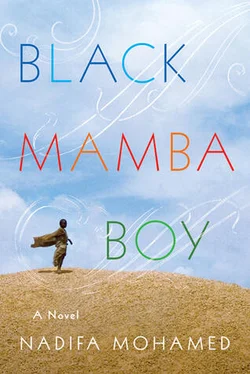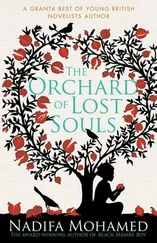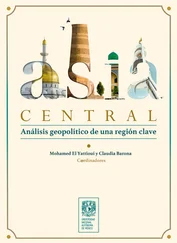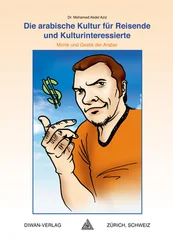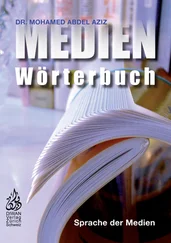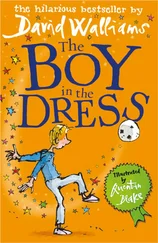With only one less passenger, the Runnymede Park set off for Hamburg. Despite their defiance, something had been lost among the refugees; they finally realized that they were prisoners, in no position to negotiate or barter, and worst of all, they felt as if the world had forgotten them. More children were born on the way to Gibraltar, where the ship refueled. These babies were prisoners of the British, but also of their parents’ dreams. Jama was back at work but even he was infected with the melancholy of the refugees; a ship full of heartbroken people has a particular flavor, a certain spirit that is hard on the soul. Jama only had to look into the faces of the refugees to be sent back to his own nightmares, to feel again deep fear, despair, and self-hate. The refugees had been treated like animals, had been mocked, beaten, degraded by men reveling in their power, as had Jama, and that humiliation never left anyone. It sat on their backs like a demon, and these demons would intermittently dig their talons into flesh and remind them of where they had been. Jama approached the large lady one day; her daughters didn’t run around anymore, just sat quietly next to her. He pressed a couple of chocolates into the mother’s hand, she hid them in her bra and took Jama’s hand, her large brown eyes read his palm while he tried to remember his words of Hebrew.
“Shalom!” Jama said.
“Shalom,” the woman replied, stroking the lines on his hand, nodding her approval; she saw a good life there.
Jama pointed to his chest and said, “Jama.”
The woman held out her hand. “Chaja.”
At seven in the evening the refugees gathered on the deck, everyone but a few women on laundry duty, and found whatever space they could to sit or stand around the cage. These meetings were called regularly to solve disputes between refugees, or between the refugees and the British, but sometimes the people gathered just to talk and sing. Jama, Abdullahi, and Sidney were the only crewmen who seemed interested in these powwows, and they joined the refugees whenever they were called. Abdullahi treated the meetings as a kind of theater: he shook his head, laughed, shouted out “Ajeeb!” and clapped his hands together. Jama also enjoyed the drama; the actors took him back to Gerset and its domestic intrigues and machinations. Sidney sat apart, scratching things into his notepad. Under the glare of the searchlight, ghostly figures complained about the mothers who did not clean up after their children in the latrines, the noisiness of the British marines walking along the duckwalks at night, sometimes even disputes from the war or before the war were brought up. An old man in nothing but his undergarments was squaring off with a much stronger bare-chested man.
Jama asked Abdullahi what the old man wanted. “He says this young man stole his property before the war.”
Sidney was laughing at the amateur boxers, as were some of the refugees, but Jama worried for the old bearded man. His bony legs could barely hold him up but he persisted in shoving and enraging the younger man.
The old man cried out in English, “I used to be somebody! I had a name that was respected, I owned a farm, a flour mill, a forest!”
The men were separated and a young woman stood up to speak. “I knew this man in Poland, he was a friend of my father’s, he taught Hebrew to my sisters and me. When the German and Polish soldiers came, he saved my life. He hid me in a barrel in his flour mill while the rest of my family were walked to the river and shot. I saw their naked bodies floating down the river. If it wasn’t for this man I would be in that river with them. If he says this man stole his property, then it is the truth.”
German burghers spoke after Hungarian farmers and Red Army soldiers, some described prewar lives of furs, chauffeurs, and governesses while others had known only the misery of poor harvests, pogroms, and bitter winters. Even now, good fortune was sprinkled haphazardly and confusingly, as many refugees had lost forty or fifty members of their family while others were still huddled with their children and parents. Abdullahi translated as much as he could for Jama while Sidney scribbled things down. The children were also given time to speak, and a little girl with a crooked back told the people that her family had fled to Uzbekistan during the war, and when they had tried to return to their village in Poland afterward her parents had been attacked and killed. She was now one of the many frail orphans aboard the Runnymede Park who believed that Palestine would be a land of peace and milk. All the refugees spoke of Palestine as a kind of empty paradise where orange trees grew and birds sang, which had no relation to the poor Arab country that Jama had passed through. There were too many here to squeeze into all the beyt al-deefs of Palestine. They had been set adrift on the dark sea, and Jama wondered where this ship would take them and where it would take him. He had long stopped thinking of Somaliland as his home, but the refugees made him realize how precarious it was to never belong anywhere. These floating Jews — hounded, harried, and lost — had no stars to guide them, but he did.
Chaja stood up, waiting for her chance to speak; she was impatiently tapping her feet, grasping her son to her hip. A young Polish partisan was speaking about the need to fight for a Jewish state. Many of the young people had been part of Zionist groups in their villages and their hunger for a homeland now coalesced with a desire to avenge their families. The partisan seemed unable to see a future without more violence, more battles, more ghettos, more blood on the streets. “If they do not let us live on our land, we will crush them like ants, we will smash their heads against boulders and walls,” he said in heavily accented English.
Chaja pushed him aside and stepped under the huge lamp. “I have lived through Polish hell, Russian hell, German hell, and now British hell, but I swear by God that I will not condemn my children to Palestinian hell. I have lost my husband and son already, watched their ashes blow out of Nazi chimneys. I want peace, just peace, give me a little scrap of wasteland as long as my children can eat and sleep in peace. My father was a philosophy teacher but my daughters cannot even read, you think they can learn while you are fighting and smashing heads? Take your violence and murder to people who have had enough of comfort. I want nothing from guns and bombs. You think you are David from the Bible but we are not your worshippers or subjects. In Palestine there must be no war. If there is war we may as well stay in Poland, or go to Eritrea, Cyprus, or wherever the British want to send us.”
Chaja spoke until her throat was raw and thick veins stuck out along her neck, and she brandished her baby like a weapon, thrusting him at the partisan. Jama barely understood what she said but he was moved by her. The partisan looked so weak beside her that if Jama had to follow either of them, he would follow Chaja. He had seen how strong women were better leaders than strong men. With the Italians he had learned how to destroy, but the women of Gerset had taught him how to create and sustain life.
The refugees remained quiet after Chaja’s speech, they nursed their dreams of peace and dreams of war in silence. They were cut off from the rest of the world, unable to comprehend real life anymore; farms, schoolhouses, synagogues were all things of their imagination now. Eventually a teenage boy pulled out a harmonica and played to them, children clapped and sang “Hatikvah,” serenading their fearful parents with sweet wavering voices.
Jama, Abdullahi, and Sidney clapped along. Jama remembered sitting as a child beside his father under the gigantic moon of the Somali desert. Old men dominated the evenings, talking about trade and clan disputes until they grew tired, then the young men would take their place to sing love songs and recite poetry that gloried in the richness of their language. Jama wished that his mother had had her chance to speak out like Chaja, to show those men all the workings of her wonderful mind and all the courage in her heart.
Читать дальше
Конец ознакомительного отрывка
Купить книгу
